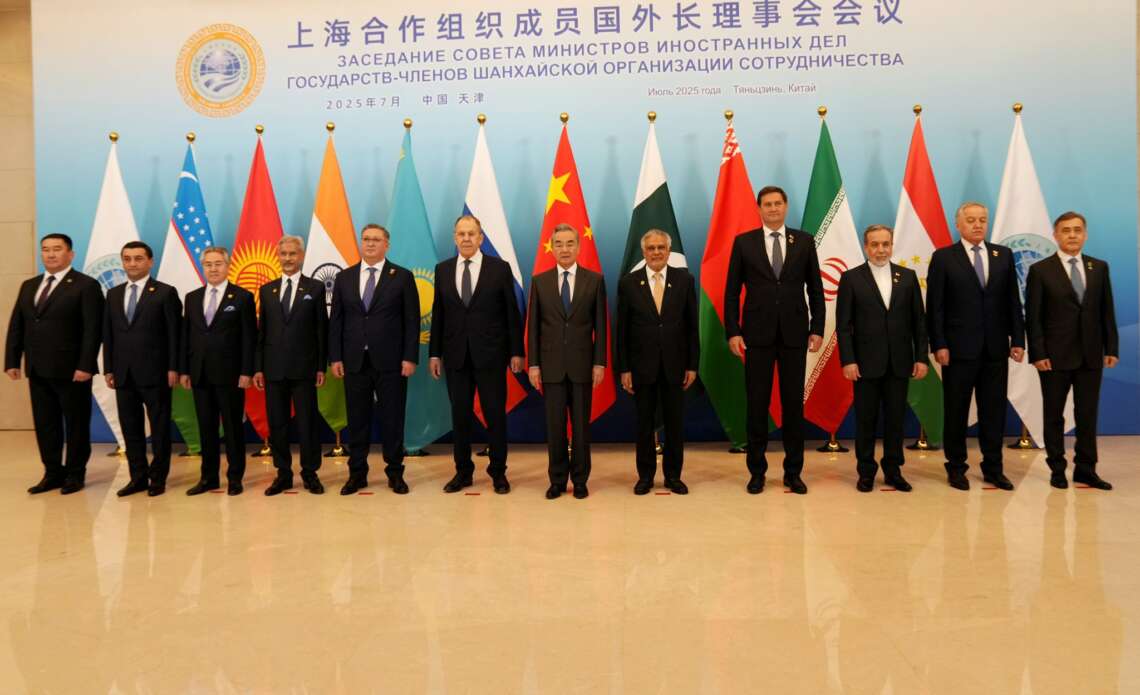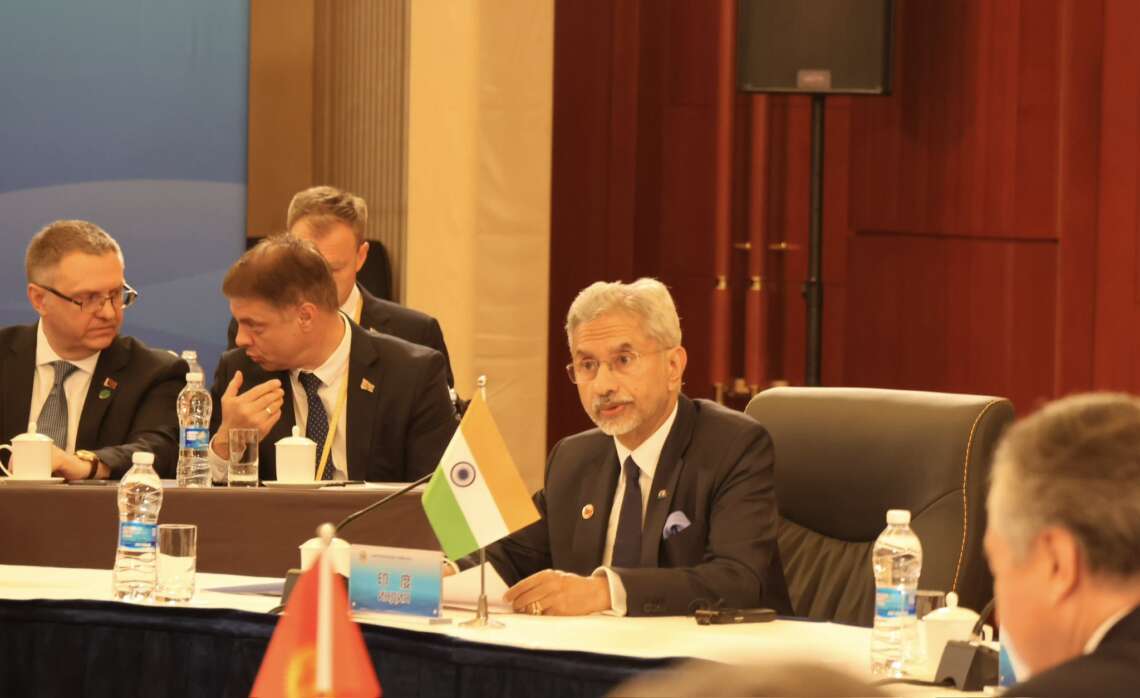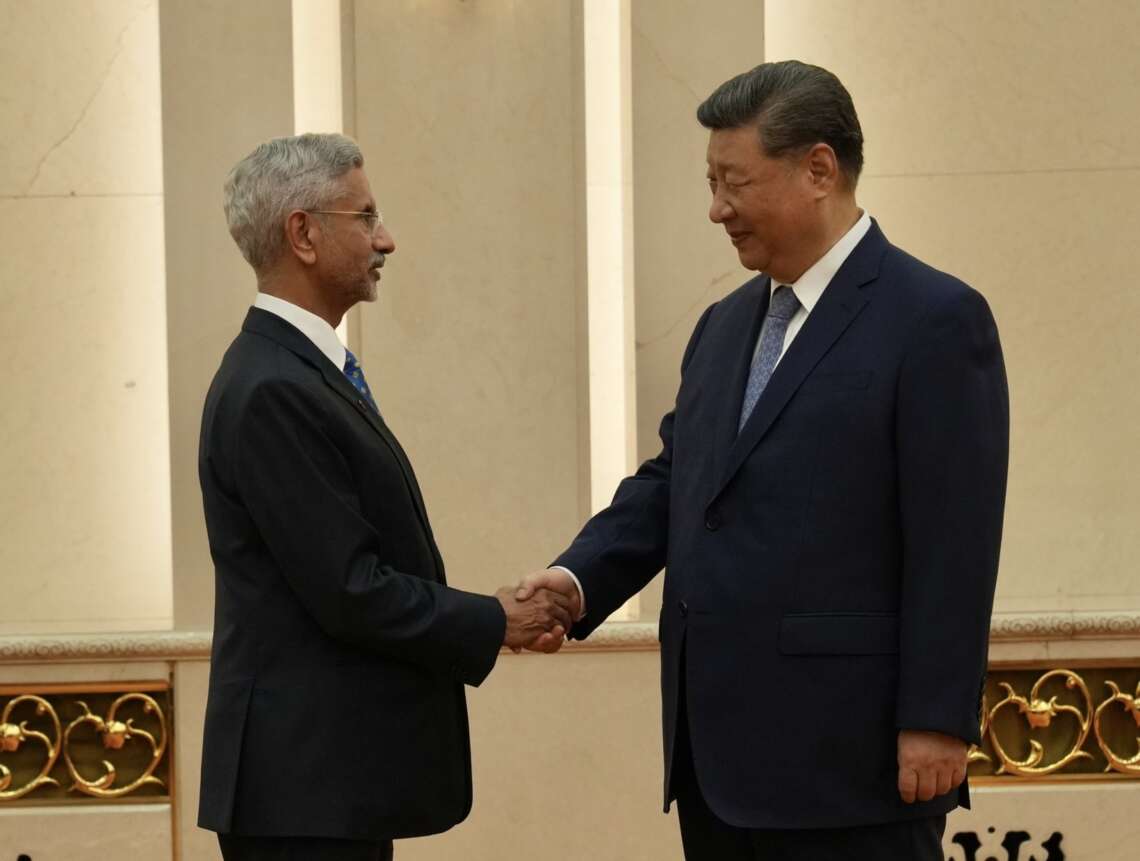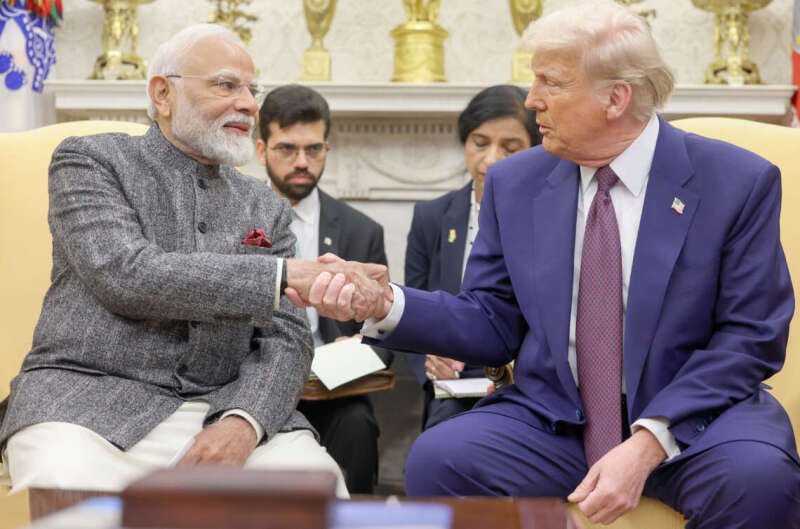Beijing has been for years now, denying Western allegations of human-rights violations in Xinjiang, with China portraying the region as infected by a violent strain of religious extremism…reports Asian Lite News
China’s Xinjiang region, which has been under the scanner for violating human rights, has now been shown as a far more idyllic view of the region as instructed and funded by Xi Jinping government to promote it as a tourist destination through a television drama, the Wall Street Journal reported.
According to the United States, China’s far western Xinjiang region is often associated with detention camps and a wide network of security checkpoints to control Uyghurs and other mostly Muslim minorities.
However, Beijing has been for years now, denying Western allegations of human-rights violations in Xinjiang, with China portraying the region as infected by a violent strain of religious extremism that needs to be eradicated.
“To the Wonder,” the television drama depicting Xinjiang as a land of beauty and wide-open steppes rather than a dangerous backwater inhabited by potential terrorists, the Wall Street Journal reported.
Meanwhile, now, China’s propaganda system is promoting a far more idyllic view of the region at least for a domestic audience, as reported by Wall Street Journal.
Recently, a Chinese television drama, “To the Wonder,” about the love between a Han Chinese writer and a Kazakh man, has grabbed the country’s attention, dominating social media and sparking a Xinjiang tourism boom.
The show “To the Wonder” is part of a ramped-up effort to showcase Xinjiang as a beautiful land instead of a dangerous land occupied with potential terrorists.
Moreover, their strategy has proven successful, especially among young, urban Chinese looking for escape from their hectic lives, reported Wall Street Journal.
“To the Wonder” is one of the most popular drama series this year on the Chinese internet and the state broadcaster, attracting more than 100 million viewers online within a week of its release in early May.
The head of tourism in the small Xinjiang town of Altay, where the show is set, said that the bookings there have increased 370 percent since the show began.
The show has been funded by the state and heavily promoted by their official media, is based on a popular memoir published in 2010 by Li Juan, about her family’s hardships among Kazakh nomads in northern Xinjiang.
The director, Teng Congcong, is known for work with a focus on women and she told the local media that she saw potential in Li’s book for another female portrait, Wall Street Journal reported.
Li was born in a Xinjiang paramilitary compound in 1979, when Beijing sent young Han Chinese to help develop the remote area. She spent most of her childhood in Altay.
Last year, the National Radio and Television Administration selected the show for state funding.
Notably, one of the criteria was that projects must “tell the China story well.”
The show, co-produced by the state broadcaster and video platform iQiyi, also highlighted a new business model for Chinese authorities, with local officials tapping into the popularity of dramas filmed in their regions to promote tourism.
The radio and television administration further encouraged platforms to use algorithms to promote the shows, stating, “Positive energy should generate massive traffic”.
However, the promotion has mostly targeted young Chinese, but the show was included in the Canneseries, an international television festival held annually in Cannes, France, and is also airing in Kazakhstan this month.
The Xinjiang official account on X, promoted the show in English-language tweets, saying it represents the “freedom, grandeur and beauty of northern Xinjiang.”
Human-rights concerns in Xinjiang, covering the one-sixth of China’s land territory, have been one of the focal points of US-China tensions, reported Wall street journal.
The Chinese government has been targetting Uyghurs and other minorities with mass detention and omnipresent surveillance as part of a campaign of forcible assimilation, which has also encouraged marriages between Han Chinese and minority members.
Additionally, some governments, rights groups and researchers have also alleged that the Chinese authorities are employing forced labor in Xinjiang as part of the campaign.
The US law bans imports linked to the region and their lawmakers label Beijing’s treatment of Uyghurs as a form of “genocide”.
China’s government, however, has portrayed the assimilation campaign as an effort to fight religious extremism and terrorism.
According to the officials, the efforts to relocate rural residents to factories help improve their income and living standards, Wall street Journal reported.
Daria Impiombato, an analyst at the Australian Strategic Policy Institute, a Canberra-backed think tank, said that the authorities are trying to sell a more “docile and lovable” image of China’s frontier regions.
Impiombato also co-wrote a report on how Chinese authorities have begun to enlist women as “frontier influencers” in propaganda efforts around troubled regions such as Xinjiang and Tibet, wall Street Journal reported.
Xinjiang’s propaganda department has planned to spend 308 million yuan, or roughly USD 43 million, on culture tourism and communications and media this year, which is more than 60 per cent of its total budgeted spending and 27 per cent more than it spent on such items in 2020.
The boosting tourism helps the Chinese government bring Xinjiang into the mainstream, making it just like any other place in China, Impiombato said.
Traditionally, minorities have been depicted in official Chinese media as either living in backward conditions or glorifying how much better their lives have become under the Communist Party leadership.
“To the Wonder” is a more nuanced portrayal. It shows the everyday struggles of the herders and their love of nature and their livestock.
In one of the scenes, with little cash on hand, a Kazakh family insists on paying a debt with a camel, as reported by Wall Street Journal.
However, a few scenes remind the audience of the reality of life in Xinjiang, such as when two Kazakh men have to hand over their pocket knives to use public transportation.
The Human Rights Watch released a report in February, stating that it found that Chinese authorities are coercing Uyghurs and other Turkic Muslims away from their homes and into jobs in factories and warehouses around China.
Earlier in May, Thea Lee, the deputy undersecretary for international affairs at the US Labor Department said that the forced labourers are being transferred from Xinjiang to elsewhere in China in growing numbers. (ANI)
ALSO READ: China, Australia Sign MoU to Restart Economic Dialogue














